 |
||||||||
| Past Issues | Subscribe | Send to a Friend | compostingcouncil.org | ||||||||
|
This spring the Board of Directors contracted with Ron Alexander (R. Alexander Associates), one of the founders of the program and a well-respected compost market research/development consultant, to review the state of the program, and give input on the direction and future emphasis of the program. In his review, Ron contacted 12 current STA participants, 2 current USCC staff, 1 past STA manager, 1 lab, 1 CAP lab program manager, the 2 current Market Development Committee (MDC) co-chairs, and 4 end users/specifiers to gather information. Ron’s report to the Board outlines recommendations, including changing the structure of committees supporting the program. These recommendations will help improve the program to the benefit of compost manufacturers and end-users alike. The STA program will now be supported by three committees instead of one:
With the workload divided among more committees, and with new technology in the works, the STA program will advance more quickly! Read more about these committees in the articles below.
Kevin was a pioneer and strong supporter of the MNCC and US Compost industry with both his time and financial support. He and his staff worked with Carver County to evaluate storm water from the U of MN Arboretum compost site which SET managed and operated, he always supported the MNCC with its membership and donations to our workshops, and was generous with staff support on the MNCC Board of Directors and at all of our workshops and training. Most importantly he was a kind and generous person, my friend and mentor. I will miss him greatly. At the request of the Tritz Family and Specialty Environment Technologies (SET) the Minnesota Composting Council is pleased to honor Kevin Tritz by establishing the Kevin Tritz Memorial Fund. Kevin passed away from pancreatic cancer on August 8, 2020. Kevin was an enthusiastic supporter of the Minnesota compost industry and the greater US compost industry. The Family and SET have requested that funds donated to the Kevin Tritz Memorial Fund be dedicated to research that brings sound science to the composting industry and education that furthers the public's understanding of the positive impacts to the environment of using compost.
The Committee is made up of the following positions and members:
The committee meets monthly and has established a rolling prioritized agenda of program management, end-user, and lab issues to work on. These items are based on information gathered by Hilary Nichols over several years of managing the program, Bob Yost in preparing for the new position, and Ron Alexander after creating a report for the board on the topic. STAAC Chair Bob Yost states: “The STA Program is foundational to the success of the USCC’s mission and the expansion of composting and compost use. It provides not only a consistent, science based, compost targeted analytical standard, but also undergirds both the credibility and accountability of its participants that in turn delivers confidence to an ever-growing marketplace of diverse stakeholders. The STACC’s focus is to help strengthen and grow the STA Program in North America.” The STAAC committee will keep you updated on the work in progress via our website and media outreach.
For those who are not familiar with the program, the Young Professionals Group is a group of young (under 40) professionals in the compost industry who partner with the USCC. They run several programs for the USCC that would not be possible without their help. Each year they help the USCC with marketing and outreach throughout the year as well as at the conference, run the mentoring program, arrange an annual volunteering project, facilitate quarterly webinars, and design and execute the Emerging Composter competition at the annual conference. Several of the yearly YP projects will take a new virtual aspect as we all navigate the new “normal”. They have begun planning changes to make to the Emerging Composter competition at the annual Compost Conference; keep your ears out for what that opportunity will look like this year! They have also begun discussions around the yearly YP Volunteering project at the annual conference and how to get folks engaged from home. We are excited to see what they come up with and how we can all connect, even from afar. Finally, the YP Mentoring Program is well underway! The pairs are about one third of the way through the program as the program runs from May through January. This year has been the biggest cohort of mentor and mentee pairs in the program’s history! We want to give a big shout-out to all our fantastic members who have joined this program as mentors – sharing their knowledge and furthering the compost industry. The Market Development Committee (MDC) is a highly-productive committee of the USCC, co-chaired by Bob Engel, President of Engel & Gray Inc, and Chuck Duprey, President of Naturcycle LLC. The Market Development Committee (MDC) has been kept busy serving several roles for the Seal of Testing Assurance (STA) Certified Compost program. With the Board’s formation of the STA Advisory Committee (STAAC), some of the weight has been shifted off the MDC committee’s shoulders. Now the MDC will be able to focus on marketing STA Certified Compost and marketing general compost use. This year the USCC also added a new position- Eric Hudiburg is our new Communications & Marketing Manager. Eric is skilled in photography, videography, and graphic design. Eric holds a bachelor’s degree from Stetson University and has experience as a multimedia designer at Green Mountain College. As a part of increasing the number of staff and growing the number of committees who work with our programs, it makes sense to shift staff responsibilities to help us align the Strategic Plan goals with the committee work plans and assure that we have committees properly staffed and funded for success. With her 20 years of experience with end-users, Hilary Nichols will be focusing on the management of the STA program and will be supporting Eric with program messaging. With his experience with graphics, Eric will be focusing on the marketing for the MDC and all the USCC’s programs. Hilary and Eric will work closely together in approaching specifiers. Through focusing the MDC’s tasks, and increasing the number and skills of staff at the USCC, the Seal of Testing Assurance (STA) Program will expand more quickly to be the Gold Standard for compost. We are excited at what new things this year will hold for the program.
Have you been intrigued by the USCC’s Target Organics project, and wondered what it was all about? Do the concepts “compost desert,” lack of infrastructure, municipal solid waste plan and reducing contamination mean something to you? Come learn about how USCC members and staff are tackling these issues with laser-focused strategies through our Target Organics Hub and Roadmap committees and the projects they are facilitating. The webinar, sponsored by Bio Bag, features Susan Thoman (Compost Manufacturing Alliance), Chair of the Hub Committee and Kellie Kish (City of Minneapolis), Co-Chair of the Roadmap Committee and Solange Ackrill (Club Coffee) of the Hub Committee to tell you about the 2018 and 2019 municipal surveys that are informing the strategy. To Register (it is free to members) click here. The Target Organics Web Page can be found here: https://www.compostingcouncil.org/page/TargetOrganicsProject.
Fifteen companies, including representatives of our launch members of the Corporate Compost Leadership Council (see members here) attended the third meeting of the new CCLC, organized to gather support and feedback from brands, retail and hospitality companies for compost infrastructure development and a feedback loop for compostable packaging solutions. Susan Thoman, USCC member and managing partner of the Compost Manufacturing Alliance (CMA), described the importance to compost manufacturers of efforts to certify and test packaging intended for composting, and her organization’s field disintegration testing program. Shannon Pinc, Natureworks, and Solange Ackrill, Club Coffee, both members of the Target Organics Committee, briefed the group on the results of two municipal surveys and their impact in forming projects that USCC is undertaking to address infrastructure needs and compost expansion. The meeting was followed by a “hangout” session where CCLC members had a chance to discuss CMA and the Target Organics surveys. The CCLC’s next meeting will be in November. The CCLC is a platform primarily for brand companies to support USCC’s work. To support and get involved, contact Frank Franciosi or Linda Norris-Waldt, or see https://www.compostingcouncil.org/page/CorporateCompostLeadershipCouncil.
Ulster County and the greater Hudson Valley Region of New York is rich with farming, landscaping, and beautification projects, and there is an abundance of compost products available to consumers in the area. Despite this aggressive market for compost and blended soil products, the Agency has a competitive edge and has been successful at marketing our finished compost because of its high quality, demonstrated by the Seal of Testing Assurance Program’s compost information disclosures. Our membership in the nation’s leading organics recycling association, the US Composting Council, adds value to our commitment and leadership administering our organics recovery program. The Agency offers the STA brochures and compost use rack cards with every purchase of our Grow Ulster Green Compost! We find that these resources provide a valuable educational component to our service, and encourages stewardship of New York's natural resources by providing guidance on the best use and applications of compost. We have linked the STA brochure directly to our website page for compost sales, and we offer the brochure and compost use rack cards in our main Administrative Office as well. We would recommend utilizing these great resources for any STA compost manufacturer because of the wonderful feedback and customer engagement opportunities it has brought to our sales, enriching the agency's service! When I moved into my 1901 Queen Anne home, I inherited over a century of previous homeowners' yard maintenance practices or lack thereof. My front yard had decent looking topsoil but it was very compacted. Whenever it would rain, it seemed that the water would just run off. It was very difficult to grow anything successfully. One of the more noticeable features is a Willow Oak that is probably as old as the house or close to it. The back half of the property was a jungle of non-native invasive plants. After removing this jungle and several decades of dumped items such as tires, cans, and bottles and more, I found that the soil here was rich and deep. I could dig down a foot and a half before I hit clay. Things grew well and when it would rain, the runoff was greatly less than the front yard. This got me to thinking about why and how to use this knowledge to improve plant survival success. My background is that my dad worked for the Soil Conversation Service for 25 years. So I grew up hearing about soils and conservation and ecology from a very early age. I know soil is made up of sand, silt, and clay in varying degrees. It also should have organic material in it. Good healthy soil should have an organic content of 3-6%. How loose or compacted the soil is is based on these four components in addition to mechanical compaction from human interaction. In our area, organic material breaks down in about three years. Traditional landscape practices are to cut back grasses and perennials, rake up the debris and leaves, and haul it away or dump on a compost pile. For the health of the soil, this may be the worst thing you can do. As a tree/plant grows, it takes up nutrients in the soil. The plant uses this for its growth and then when it drops leaves, the nutrients are dropped to the ground as well to be used again by the plant. However, we often haul all this organic material away, so the tree/plant finds more nutrients in the soil to use and the process repeats. Logic would tell you that you can only do this so long before most of the nutrients in the soil have been hauled away in our fastidiousness of cleaning up our yards. As the organic material is depleted, the soil continues to collapse and can absorb less water as it does so. Healthy soil becomes dirt that can no longer support a healthy ecosystem. The typical homeowner tries to make up this practice by mulching every year. Typically mulches need to be 3’’ deep to keep weeds down and to hold moisture. After years of doing this, a deep top layer is formed that often is hydrophobic. Bark mulches do add organic material to the soil but break down relatively slowly. So I began experimenting with using a thin layer of aged compost as a mulch in my more manicured areas of the yard. Anywhere that I can do so, I have planted plants that leaves can fall down into and stay hidden and allowed to decompose. My pollinator garden plants are left standing all winter and then cut back just before new spring growth. Those are laid down in the bed so that the new growth can grow up through the “debris.” This becomes a natural compost mulch. The areas that I use compost as a mulch I often just spread it over any leaves that may be there. This keeps the beds looking tidy without hauling away all the good free organic material. The results so far have been good. While the compost can also become dry and hydrophobic during hot dry spells in the summer, overall, I get much better water absorption, the beds look like someone cares, and I avoid the build up of years of mulch.
Back in 2017, I decided to focus on the sales of engineered soils or amended soils to diversify our markets and even-out product turnover. Those markets require compost products participate in the STA Certified Compost program. The publications the U.S. Composting Council have made available about their STA Program have made it possible for me to take my outgoing sales volume to the next level. My commercial sales from January to August 2017 were 1,924 cubic yards and now from January to August 2020 they are 4,660 cubic yards! That’s more than doubling my volume sold in three years thanks to the STA program. Barnside Farm Compost is a small 5 acre site and at times can get jammed up with material if we did not market our compost effectively. With the help of the U.S. Composting Council listing their STA participants, engineers are finding us and sharing information that Barnside meets STA standards. Thank you U.S Composting Council for all your support and marketing help you are giving composters large and small. We are making our footprint one step at a time. The U.S. EPA asked for public feedback on a list of recycled-content products purchased by federal agencies. The request drew 114 responses from a range of recycling stakeholders. For the first time in 13 years, the U.S. EPA is going through the process of updating what it calls its Comprehensive Procurement Guidelines (CPGs), which push federal agencies toward buying 61 recycled-content products in eight categories: paper, vehicular, construction, transportation, park and recreation, landscaping, non-paper office and miscellaneous products.
Sarah has been an incredible part of the USCC and TOC, we will sorely miss her. The USCC Board will decide this month to replace Sarah’s vacated board seat. Hilary Nichols, staff liaison for the Target Organics Roadmap, says “She's been deeply engaged, responding quickly with detailed feedback to so many materials we’ve all put in front of her. The authenticity, positive energy and clear focus she's brought to what she works on has been impressive. We are sad to see her go. We hope that in her new position we will still get to work with her, and it sounds like there are still strong connections!”
As more areas within Florida continue to shift away from Class B land application of biosolids, WeCare Denali is in prime position to manufacture a beneficial reuse product for growers around the state. Mr. Mozingo notes, “I pursued the CCOM certification in order to support our company with licensed personnel who take pride in the quality service WeCare Denali is able to provide to their municipal and commercial clients, while also being the best neighbor we can be in the communities where we operate.”
Mr. Browne, notes, “I am excited to be leading our WeCare Denali Composting Team in Phoenix. The City of Phoenix has been a great partner and both the City and WeCare Denali are committed to growing composting in the desert. I plan to use my CCOM® experience to help improve operations, as well as, train others in how to compost properly and manufacture products that have a very high value (especially in the desert).” Much of the work on reducing greenhouse gas emissions and carbon (C) sequestration using biotic strategies has been conducted in row crops and forest systems. Little research has focused on contributions from sectors of the specialty crop industry such as ornamental horticulture. In fact, there is much uncertainty regarding best practices for lowering greenhouse gas (GHG) emissions and increasing carbon storage in the ornamental horticulture industry. This is an area to be studied (Marble et al..2012). There are seven USCC Board seats available: three are for Compost Manufacturer positions; and four affiliate positions. All are three-year terms. These Board positions are critical to the management and direction of the USCC. They are YOUR representatives within our organization and YOU elect them to office. AM I ELIGIBLE TO RUN?
Interested in running? (See this page for more information about the Board). PLEASE give serious consideration to running or nominating a peer. Click here for more information about Board Roles and Responsibilities. Submission deadline: September 16, 2020 Catherine Douglas Moran Mount Vernon District Supervisor Dan Storck shared during the Environmental Committee meeting yesterday that the county staff is pushing for new ideas to reuse compost. “Arlington, D.C., Montgomery - a lot of them are already doing this kind of thing,” Storck said. “This is a limited pilot.” Arlington County, D.C. and the City of Alexandria collect compost at farmers markets. Meanwhile, Montgomery County offers compost bins. https://www.restonnow.com/2020/07/22/fairfax-county-officials-looking-to-expand-compost-pilot/ Rotochopper, Inc. is honored to be recognized as the Central Minnesota Manufacturers Association (CMMA) 2019 Manufacturer of the Year. This award recognizes and appreciates member excellence and the extraordinary investments, services and contributions offered to their thriving group. On Wednesday, July 29, 2020, CMMA Board President, Les Engel, and CMMA Board Secretary, Tim Zipoy, traveled to St. Martin, MN to present Rotochopper with this esteemed award. In a message to the CMMA board of directors Zipoy said, “Rotochopper, Inc. has professionally delivered positive and meaningful impact upon CMMA in many ways. […] They wisely join the assembly to further advance the truth that today, growth and innovation can rarely be maximized by one company, one service organization or even one industry going it alone. Rotochopper has provided guidance and servant leadership to CMMA through serving multiple terms on our Board of Directors. From their mission critical vantage point as a manufacturer, this company’s insight and direction strengthens CMMA’s capacity to meet objectives and accomplish strategic organizational goals. Rotochopper has worked upstream to engage young people and to invigorate and inspire them to consider careers in manufacturing by partnering with schools, students and parents to create new vision, new pathways and a new workforce.” Rotochopper CEO Tosh Brinkerhoff said, “We are honored to be presented with this prestigious award. CMMA continues to contribute to the growth and success of the Central Minnesota manufacturing community. We are grateful for the work CMMA has done for manufacturers and are proud to work as a partner to enhance those efforts.” As USCC members at the Basic level and above you are able to participate in the compost facility discussion group. Matt Ball from NC State University asks about how all the disinfectant on the paper towels in University waste streams could affect eventual compost quality. Chris Tempelton from Re-soil compost and USCC AD Cary Oshins talk about disinfectant & Covid 19 in compost. Login or Join the USCC to access this growing community of composters. Matt Ball: We regularly accept and compost paper towels from the university. However now that students are returning and a good deal of disinfectant is being applied all over campus, I'm wondering how much of that disinfectant we're going to be introducing through our paper towel collections. Does anyone have an idea how detrimental to the composting process those paper towels would be? I'm not sure if the disinfecting product becomes inert once it's dry, or if it would still continue to kill bacteria...
UNC Chapel Hill’s dining services program won a 2020 Gold Award for Outreach and Education from the National Association of College and University Facility Services. The award annually recognizes member institutions that have demonstrated outstanding leadership in the promotion and implementation of environmental sustainability, specifically as it relates to campus dining operations. The NACUFS Sustainability Awards support the globally accepted triple bottom line philosophy, a method of evaluating operational performance by measuring financial success as well as environmental sustainability and social responsibility—also known as “people, planet, profit.” Company
Individuals
Calling all composters, fellow member Sashti Balasundaram is doing a survey about compost equipment and technology used in compost operations. Please respond to this quick 5-question survey: https://bit.ly/2BsFp4k to provide information by August 21, 2020. Fabri-Kal, known for exceptional customer service and product quality, has refreshed its Greenware® brand. The company’s new, updated Greenware Cup and Portion Cup stock print design instructs customers to properly dispose of Greenware packaging in commercial composting facilities. The new stock design is available on all Greenware Cups and Portion Cups. The new Greenware stock print promotes zero waste to landfill efforts by clearly signaling to consumers that Greenware products are commercially compostable. The new Greenware stock print features the BPI label, indicating to consumers and composters alike that Greenware Cups and Portion Cups have been certified according to ASTM D6400 standards to be compostable in commercial composting facilities, which may not be available in your area. In addition, the design differentiates Greenware Cups and Portion Cups from those made of traditional plastic. Kansas City Composting, a sister company of St Louis Composting, producer of STA-Certified Compost, Mulch Products and Soil Blends, is seeking a Heavy Equipment Operators to work at its locations in Belton, MO and Lee's Summit, MO. Apply here.
The Biodegradable Products Institute (BPI) has been working on a guidelines document for manufacturers and brand owners to help address the challenges of labeling and identifying compostable products and packaging. The objective of the guidelines document is to, “...establish consistent, category-specific identification guidelines for compostable products and packaging that make it easy for consumers, composters and others to identify compostable products and packaging and improve awareness of how to properly dispose of them.” BPI has gotten some initial feedback from composters and municipalities on the document, but they could really use your help. While we know this is an extremely busy time for everyone, we’re asking our state chapters and compost manufacturers to review the draft guidelines (with the help of a 10-minute webinar designed to introduce you to the document), and provide BPI by the end of the week, August 20, with feedback via a short survey. The International Compost Awareness Week Committee is happy to announce the new theme and dates for ICAW 2021: Grow, Eat...COMPOST...Repeat, May 2 - 8, 2021. The ICAW 2021 theme is based on the circular movement of the organics recycling process flowing from farm to table to farm again. This circular process turns recycled organic materials into compost which creates healthy soils leading to more nutrient dense fruits and vegetables, with that waste going back to being composted and the process starting again. This new theme will be used for the upcoming ICAW 2021 Poster Contest, which starts on Sept. 1st and ends Nov. 2nd. Information on the contest can be found: https://www.compostfoundation.org/ICAW/ICAW-Poster-Contest Also, this year the ICAW Committee has added a new contest for children in grades 4 -8. They can enter the ICAW Video Contest. Details on that can also be found on the same webpage. A number of generous companies and organizations have already signed on to be ICAW 2021 sponsors. If you would like to be a sponsor too, contact Beth Simone, bethsimone@compostfoundation.org. The Standards and Practices Committee serves a critical role of keeping the science behind compost testing up-to-date. In the past this committee operated under the USCC, but unfortunately it has been a long time since our industry has had an active Standards and Practices Committee in operation. We are pleased to report that the CCREF has taken the initiative to form this committee. It makes perfect sense that the Foundation takes on the development of this committee. The CCREF can attract high quality committee members and seek grant opportunities to fund research and upgrades to the Test Methods for the Examination of Compost and Composting (TMECC). The S&P’s mission is to develop, maintain, advocate, and promote standards and best practice recommendations for the compost industry. This will be carried out through broad collaboration across the industry, under the direction of both the CCREF and USCC. It will incorporate the perspectives of researchers, labs, and boots-on-the-ground compost manufacturers. It is important to blend the perspectives of these stakeholders to keep the test methods both accurate and accessible to those taking compost samples and testing them, as well as to create test methods for new parameters as the market shows a need for them. Dr. Tera Lewandowski, Senior Scientist in Growing Media for the Scotts Miracle-Gro Company, is the committee chair and is in the process of inviting and selecting committee members. Hilary Nichols, STA Program Manager and Market Development Coordinator, is the USCC staff liaison. The committee will be comprised of a minimum of the STA Compost-Certified Laboratory Advisor, compost/soil scientists/PhD’s, compost manufacturers, to be chosen first from USCC’s Market Development Committee, and STA laboratory staff. S&P chair Dr. Lewandowski stated “We are excited to begin the work of updating and adding methods to the TMECC to ensure the most relevant methodologies and protocols are in use for sampling, monitoring, and analyzing materials at all stages of the composting process. The diverse group of individuals that have been selected to participate in the committee will allow us to develop methods that are scientifically correct, while still being accessible to all stakeholders that may need to use them.”
|
||||||||
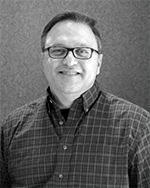 The US Composting Council’s Board of Directors' 2020-2023 Strategic Plan has directed the importance of expanding the Seal of Testing Assurance (STA) Certified Compost Program as the gold standard for compost in the US and beyond. Brian Fleury, Vice President of the USCC Board of Directors and Vice President of Organic Residuals at WeCare Denali says: “As one of the pioneer STA participants, we understood the importance for the industry”.
The US Composting Council’s Board of Directors' 2020-2023 Strategic Plan has directed the importance of expanding the Seal of Testing Assurance (STA) Certified Compost Program as the gold standard for compost in the US and beyond. Brian Fleury, Vice President of the USCC Board of Directors and Vice President of Organic Residuals at WeCare Denali says: “As one of the pioneer STA participants, we understood the importance for the industry”.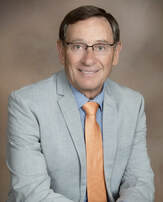 It is with a heavy heart that the MNCC reports the loss of one of Minnesota's pioneers of the Minnesota composting industry. The Minnesota Composting Council extends its deepest sympathies to the Tritz Family and the SET Family. Kevin Tritz, of Specialty Environmental Technologies passed away on Saturday August 8th. Kevin fought a long 2+ year battle with pancreatic cancer.
It is with a heavy heart that the MNCC reports the loss of one of Minnesota's pioneers of the Minnesota composting industry. The Minnesota Composting Council extends its deepest sympathies to the Tritz Family and the SET Family. Kevin Tritz, of Specialty Environmental Technologies passed away on Saturday August 8th. Kevin fought a long 2+ year battle with pancreatic cancer.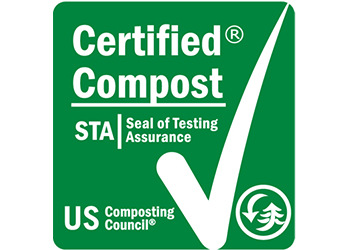 We all want the Seal of Testing Assurance (STA) Certified Compost Program to be the gold standard for compost! To help with this, the USCC Board of Directors has formed the STA Advisory Committee (STAAC) to serve solely in an advisory role. The committee chair is Bob Yost, USCC Board of Directors Interim Past President and Vice President and Chief Technical Officer at A1 Organics. The staff liaison is Hilary Nichols, STA Program Manager and Market Development Coordinator for the USCC. STAAC will pre-vet items related to the STA program and make recommendations for review and application. STAAC will advise on STA program management, upgrades and compost use specifications. STAAC will work with the Standards and Practices Committee (S&P) which is housed in the Composting Council Research & Education Foundation (CCREF), related to Test Methods for the Evaluation of Composting & Compost (TMECC) revisions. And STAAC will work with the Market Development Committee (MDC) on items related to marketing the program.
We all want the Seal of Testing Assurance (STA) Certified Compost Program to be the gold standard for compost! To help with this, the USCC Board of Directors has formed the STA Advisory Committee (STAAC) to serve solely in an advisory role. The committee chair is Bob Yost, USCC Board of Directors Interim Past President and Vice President and Chief Technical Officer at A1 Organics. The staff liaison is Hilary Nichols, STA Program Manager and Market Development Coordinator for the USCC. STAAC will pre-vet items related to the STA program and make recommendations for review and application. STAAC will advise on STA program management, upgrades and compost use specifications. STAAC will work with the Standards and Practices Committee (S&P) which is housed in the Composting Council Research & Education Foundation (CCREF), related to Test Methods for the Evaluation of Composting & Compost (TMECC) revisions. And STAAC will work with the Market Development Committee (MDC) on items related to marketing the program. The Young Professionals Program is looking forward to another great and interesting year! We are pleased to welcome five new young professionals to the program. Leilani Ching, Shabnam Ferdowsi, Kyleen Sanchez, Antoine Abou Moussa, and Clare Jones will be joining our stellar group of Young Professional led by Committee Leaders: Kristine Ellsworth, Leslie Rodgers, Patrick Evans, Gowri Somasundaram, Shelby Hoglund, Felipe Pedrazzi, and Natasha Dyer, with returning committee members Isaac Bearg and Coryanne Mansell.
The Young Professionals Program is looking forward to another great and interesting year! We are pleased to welcome five new young professionals to the program. Leilani Ching, Shabnam Ferdowsi, Kyleen Sanchez, Antoine Abou Moussa, and Clare Jones will be joining our stellar group of Young Professional led by Committee Leaders: Kristine Ellsworth, Leslie Rodgers, Patrick Evans, Gowri Somasundaram, Shelby Hoglund, Felipe Pedrazzi, and Natasha Dyer, with returning committee members Isaac Bearg and Coryanne Mansell.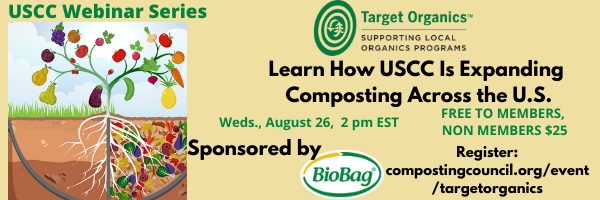
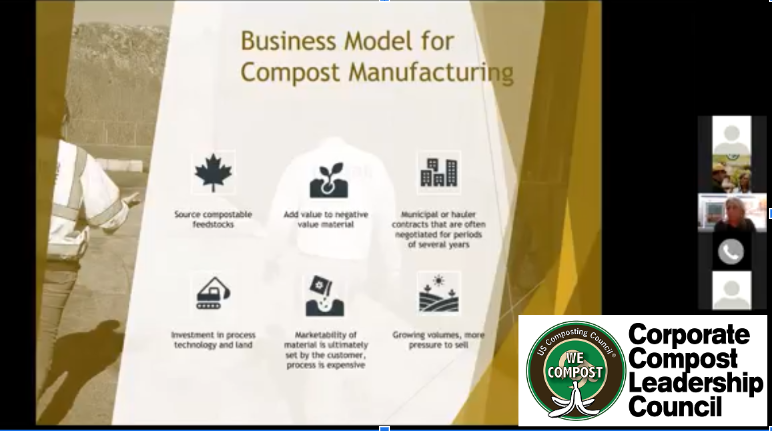
 Ulster County Resource Recovery Agency has been a proud partner of USCC and has been participating in the
Ulster County Resource Recovery Agency has been a proud partner of USCC and has been participating in the 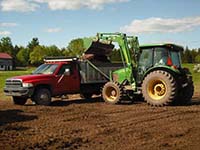 To all of you composters out there that have survived the spring rush you know that residential sales drop way back by the end of May as we approach the summer. But we are seeing an increase every year of taking in more and more yard waste.
To all of you composters out there that have survived the spring rush you know that residential sales drop way back by the end of May as we approach the summer. But we are seeing an increase every year of taking in more and more yard waste.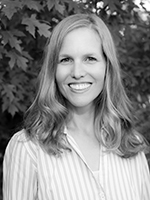 Congratulations to Sarah Martinez, who is leaving Eco-Products to be Director of ESG (Environmental/Social/Governance) Strategy & Stakeholder Engagement for The Clorox Company! What an amazing new position. Sadly, this means that she’s also leaving her position as USCC Board Secretary and the Target Organics Committee (TOC) Roadmap Chair.
Congratulations to Sarah Martinez, who is leaving Eco-Products to be Director of ESG (Environmental/Social/Governance) Strategy & Stakeholder Engagement for The Clorox Company! What an amazing new position. Sadly, this means that she’s also leaving her position as USCC Board Secretary and the Target Organics Committee (TOC) Roadmap Chair. So in the last TOC Roadmap meeting, the group voted on who they all wanted to chair the group. Susan Thoman, TOC chair and Principal and Managing Director of the Compost Manufacturing Alliance, heartily approved the recommendation, and the nominees accepted! Congratulations Wayne Koeckeritz, Operator Specialist at EcoProducts, and Kellie Kish, Recycling Coordinator for the City of Minneapolis' Division of Solid Waste & Recycling, our new co-chairs for the TOC Roadmap group! You have already been excellent contributors to the task force, and we're excited you both are stepping up to lead it now.
So in the last TOC Roadmap meeting, the group voted on who they all wanted to chair the group. Susan Thoman, TOC chair and Principal and Managing Director of the Compost Manufacturing Alliance, heartily approved the recommendation, and the nominees accepted! Congratulations Wayne Koeckeritz, Operator Specialist at EcoProducts, and Kellie Kish, Recycling Coordinator for the City of Minneapolis' Division of Solid Waste & Recycling, our new co-chairs for the TOC Roadmap group! You have already been excellent contributors to the task force, and we're excited you both are stepping up to lead it now. Matt Mozingo is the Operations Manager for WeCare Denali, LLC at the NuTerra Organics Compost Facility in Fellsmere, FL. Mr. Mozingo started as the Operations Manager of the large scale in-vessel aerated static pile (ASP) biosolids composting facility in 2018, shortly after the facility began operations.
Matt Mozingo is the Operations Manager for WeCare Denali, LLC at the NuTerra Organics Compost Facility in Fellsmere, FL. Mr. Mozingo started as the Operations Manager of the large scale in-vessel aerated static pile (ASP) biosolids composting facility in 2018, shortly after the facility began operations. Jason Browne is the Facility Manager for WeCare Denali, LLC at the City of Phoenix Compost Facility. WeCare Denali has been operating the City of Phoenix’s state-of-the-art composting operation since it was constructed in 2016. The Facility is designed to process 36,000+ tons/yr of yard trimmings and food waste through a turned aerated (positive & negative) pile technology. Mr. Browne manages all aspects of the operation and is also responsible for all sales of finished product. He has been a solid waste professional for the better part of a decade where he has been involved with all aspects of the business, including collections, processing and distribution.
Jason Browne is the Facility Manager for WeCare Denali, LLC at the City of Phoenix Compost Facility. WeCare Denali has been operating the City of Phoenix’s state-of-the-art composting operation since it was constructed in 2016. The Facility is designed to process 36,000+ tons/yr of yard trimmings and food waste through a turned aerated (positive & negative) pile technology. Mr. Browne manages all aspects of the operation and is also responsible for all sales of finished product. He has been a solid waste professional for the better part of a decade where he has been involved with all aspects of the business, including collections, processing and distribution. Christopher Templeton: I personally don't have too much knowledge on this topic but have been wondering the same thing about similar products received in our deliveries in the past as well. I would think that I would want to find out what disinfectant was being used so that I could try and determine what active (or inactive) ingredients were used in the formulation of the product to try and determine what effects it would have and if it would even affect the finished product or microbe community in the process. Even if it was dry wouldn't one think that if the paper towel was exposed to moisture again it would have some of the product moistened again? I am not sure. EXCELLENT question though! But I personally would start with finding out what disinfectant is used and what ingredients are used in that product. I wouldn't want a sodium hypochlorite (bleach type product) in my compost. Does anybody have any research on this or any articles/links they could share? Thanks!
Christopher Templeton: I personally don't have too much knowledge on this topic but have been wondering the same thing about similar products received in our deliveries in the past as well. I would think that I would want to find out what disinfectant was being used so that I could try and determine what active (or inactive) ingredients were used in the formulation of the product to try and determine what effects it would have and if it would even affect the finished product or microbe community in the process. Even if it was dry wouldn't one think that if the paper towel was exposed to moisture again it would have some of the product moistened again? I am not sure. EXCELLENT question though! But I personally would start with finding out what disinfectant is used and what ingredients are used in that product. I wouldn't want a sodium hypochlorite (bleach type product) in my compost. Does anybody have any research on this or any articles/links they could share? Thanks! Cary Oshins: I don't think there is much to worry about. Disinfectants volatize rapidly even at room temp, much faster at compost temps. They are also high reactive (that's how they work) which means they degrade rapidly. Certainly in the robust microbial environment of a compost pile they will be gone quickly. Plus there is the dilution effect.Germs like coronavirus are wimps compared to the vast array of microbes in our piles!I found these wikipedia articles interesting:
Cary Oshins: I don't think there is much to worry about. Disinfectants volatize rapidly even at room temp, much faster at compost temps. They are also high reactive (that's how they work) which means they degrade rapidly. Certainly in the robust microbial environment of a compost pile they will be gone quickly. Plus there is the dilution effect.Germs like coronavirus are wimps compared to the vast array of microbes in our piles!I found these wikipedia articles interesting: Compost manufacturers hate contamination. It costs money, it affects compost quality and it is generally bad business. So if you are a manufacturer ... its time to sit up and take notice.
Compost manufacturers hate contamination. It costs money, it affects compost quality and it is generally bad business. So if you are a manufacturer ... its time to sit up and take notice. 